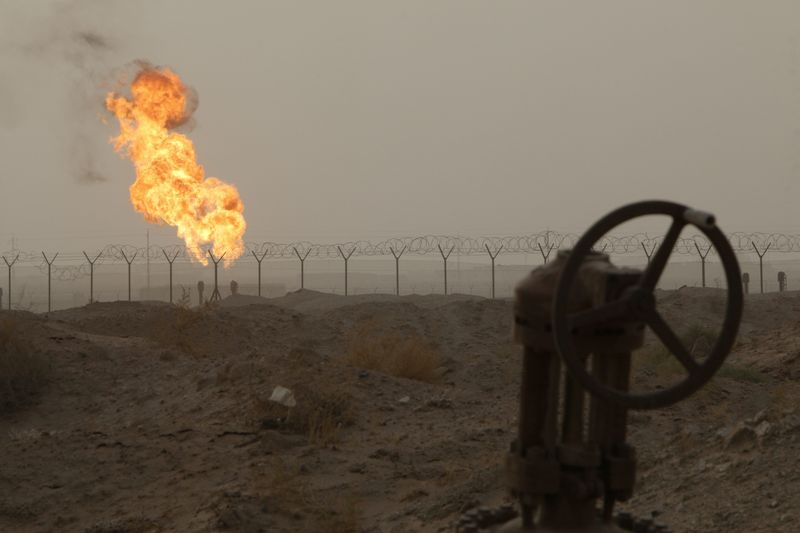By Shariq Khan
NEW YORK (Reuters) -Oil prices edged higher on Tuesday, bouncing off multi-month lows from the previous session as investor attention turned to supply tightness and financial markets recovered from their recent slump.
futures rose 18 cents, or 0.2%, to settle at $76.48 a barrel. U.S. West Texas Intermediate futures rose 26 cents, or 0.4%, to close at $73.20 a barrel. Both benchmarks broke a three-session downward streak.
Iran’s vow of retaliation against Israel and the US after the killing of two militant leaders has raised concerns about a wider war in the Middle East that could have a direct impact on supplies from the region.
Lower production at Libya’s 300,000 barrel-per-day Sharara oil field is also adding to concerns about supply shortages. Libya’s National Oil Corp said on Tuesday it would gradually reduce production at the field due to protests.
Recent declines in fuel inventories at major trading hubs are also supporting oil prices.
“Oil fundamental data continues to point to undersupply in the oil market, while oil inventories continue to decline,” said UBS analyst Giovanni Staunovo.
U.S. gasoline demand likely topped 9 million barrels per day last week, fueling confidence in the economy, Staunovo said.
Global oil supplies fell by about 400,000 barrels per day in the first half of this year, according to estimates from the US Energy Information Administration (EIA) published on Tuesday. It expects inventories to decline by about 800,000 barrels per day in the second half of the year. [EIA/M]
The agency lowered its average oil price forecasts for this year and next, citing recent declines due to economic concerns. It still expects higher prices in the coming months. Spot prices for Brent will be between $85 and $90 per barrel by the end of the year, the EIA said.

On Monday, Brent futures fell to their lowest since early January and WTI futures hit their lowest level since February as the global stock market deepened on growing concerns about a possible recession in the US, the world’s biggest oil consumer.
Still, Goldman Sachs said its economists view recession risk as limited and believe oil prices will find support from strong demand in the West and India in the coming weeks.


